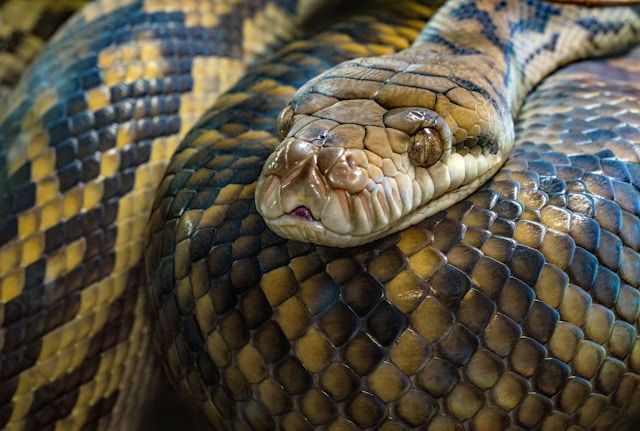New research suggests python farming could offer a sustainable alternative to traditional livestock, potentially easing global food insecurity
In a groundbreaking study published in Scientific Reports, scientists advocate for the consumption of snakes, specifically pythons, as an innovative solution to reduce greenhouse gas emissions and combat climate change. The research highlights the potential of python farming to complement existing livestock systems with higher production efficiencies and sustainability benefits.
Dr. Daniel Natusch, the lead author of the study, emphasizes the need to consider alternative livestock systems seriously. With the challenges posed by climate change, diseases, and diminishing natural resources impacting conventional livestock and crop production, there’s an urgent need for diverse and sustainable food sources. Pythons, with their unique biological traits, emerge as a promising option in this scenario.
The study notes that pythons have the remarkable ability to fast for extended periods without significant weight loss, resuming rapid growth upon feeding. This trait, coupled with their diet of wild-caught rodents and waste protein from the agri-food supply chain, positions pythons as a viable source of “food security” in a world grappling with food insecurity.
Python farms could also play a role in controlling rodent populations, further benefiting humans. By feeding on waste protein and rodent pests, python farming presents an environmentally friendly alternative, potentially more sustainable than some plant-based foods according to the researchers.
Critics of the study argue that the comparison lacks consideration of the total plant material required to sustain the animals pythons feed on, potentially overestimating their efficiency. However, Natusch counters that pythons are being fed food sources otherwise considered waste, making their farming an efficient use of resources.
Natusch also challenges common perceptions about the sustainability of plant-based diets, suggesting that python farming could result in less animal suffering due to its reliance on rodents and waste meat. Moreover, he adds that python meat, when prepared properly, is comparable to chicken in taste, making it an appealing option for consumers seeking sustainable meat alternatives.
This innovative approach to sustainable farming and consumption introduces a novel conversation about dietary choices in the face of climate change and environmental sustainability. As the world looks for ways to reduce its carbon footprint and secure food sources for its growing population, python farming could slither its way into the future of agriculture.
